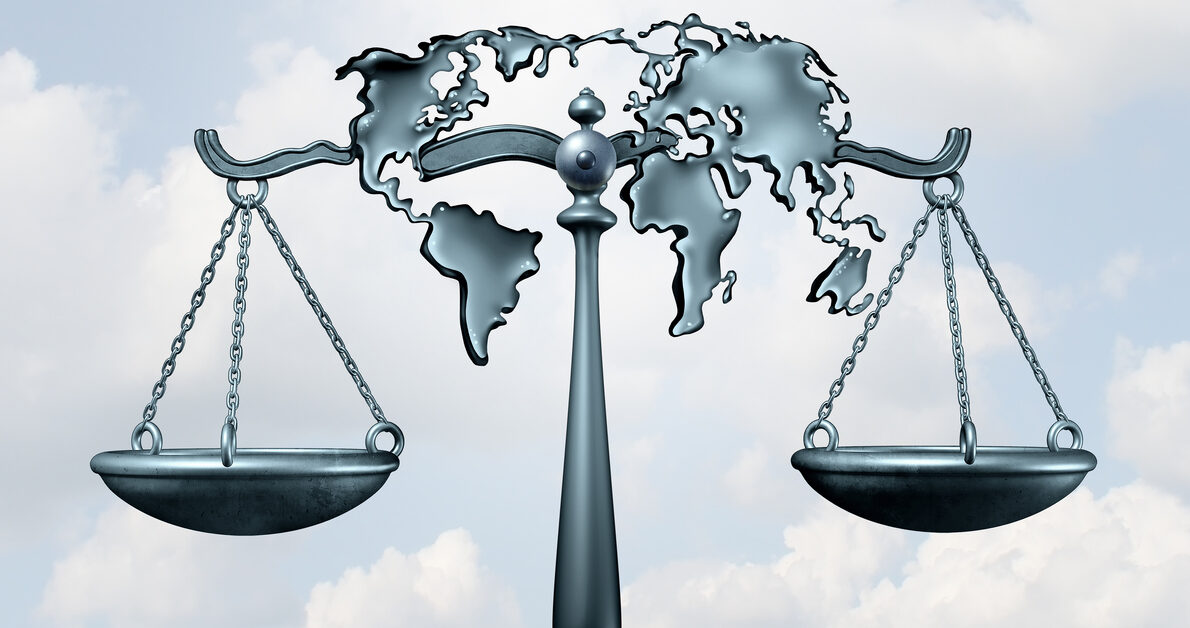In 2002, I made the decision to go to Loyola Law School mostly due to their highly ranked International Law program. I earned that certificate in two years and returned to the University of South Carolina for my third year of law school to focus on litigation. I would never do that again. Now I tell students to study whatever they have a passion, then choose the school in the geographic location they want to practice. (i.e. if you want to practice in SC, go to school in SC)
I had no idea what international law was, other than I love the diversity of culture, being exposed to the unknown, and exploring new adventures. You truly can not understand what your blessings are until you no longer have them or witness being without. Now we have helped with legal issues in four countries and have a better understanding of what international law means. One of the basics of international law is the concept of sovereignty.
Sovereignty is a word thrown around, but in international circles it is likely akin to the importance of the word Constitutional in national circles. In short it is the authority of a state to govern itself. It is like the importance of state rights, or for legal minds it is Home Rule.
Zelenskyy’s visit to Washington highlighted a harsh truth: Without US backing, Ukraine’s sovereignty is a façade and the war would end in days.
Volodymyr Zelenskyy’s recent meeting at the White House was a disaster. Afterward, every pundit rushed to declare that the rules-based international order was on the verge of collapse. Many commentators argued that any peace talks with Ukraine acknowledging Zelenskyy’s stubbornness would spell the end of international law and national sovereignty.
Their assumption is flawed. They seem to believe that international law is a higher power that countries can appeal to and that the United States is obligated to uphold. In reality, international law and the supranational bodies that supposedly enforce it are more likely to threaten national sovereignty than protect it.
Civilizations will continue to clash in a contest of great power politics, leaving smaller nations to go along for the ride — whether they want to or not.
Sovereignty means holding supreme power — the ability to make final decisions without outside approval. Sovereign entities may consider the interests of other nations and the limits of their power beyond their borders. But a truly sovereign nation does not need permission from international bodies to make decisions.
When leaders appeal to outside authorities to validate their nation’s sovereignty, they misunderstand what sovereignty means.
Sovereignty rightly understood
The political philosopher Thomas Hobbes argued that a state’s sovereignty depends on its ability to protect its citizens. By his definition, a state that cannot defend its own people or borders is not sovereign. No nation can survive long without protection from hostile forces. If a nation cannot provide for its own defense, another political entity will assume that role and, by extension, its sovereignty.
Carl Schmitt echoed Hobbes’ view when he wrote:
If a people is afraid of the trials and risks implied by existing in the sphere of politics, then another people will appear which will assume these trials by protecting it against foreign enemies and thereby taking over political rule. The protector then decides who the enemy is by virtue of the eternal relation of protection and obedience.
Despite the valiant efforts of many Ukrainian soldiers, Ukraine cannot defend itself without outside help. Western nations have sent hundreds of billions of dollars, along with ammunition and advisers, to support Ukraine’s military. Even so, the Ukrainian forces have struggled to hold their ground.
Russia has not achieved the level of dominance it wants, but the reality is clear: Without backing from the United States and other NATO allies, Ukraine would likely lose the war immediately.
In theory, international law and organizations like NATO exist to protect the sovereignty of nations that cannot stand up to great powers like Russia. NATO was founded to defend Western nations against the Soviet Union’s expansion. Although that threat has vanished, the military alliance endures, claiming to protect the sovereignty of its members. However, despite losing its primary adversary, NATO has continued to expand, moving its borders ever closer to Russia.
In reality, NATO is the United States and the United States is NATO. In 2023, the U.S. contributed $830 billion of NATO’s $1.3 trillion budget. Germany, the second-largest contributor, provided just $61 billion. This funding disparity explains why our government repeatedly urged European nations to increase their contributions to NATO and to boost their own national defense budgets.
Previous U.S. administrations have encouraged Europe’s demilitarization while pledging to defend the continent with American resources. This arrangement may have played a crucial role in stopping the spread of communism when Europe was recovering from two world wars. But with its original purpose fulfilled, NATO now serves only to distort the true nature of sovereignty.
Ukraine is not sovereign
While Zelenskyy should hold significant authority, it’s clear that the real peace negotiations are happening between Donald Trump and Russian President Vladimir Putin. If the United States continues to provide financial and military aid, the war could drag on for years. If that support ends, the conflict would likely conclude swiftly.
Ukraine’s inability to defend itself independently means it cannot control its own fate. Ukraine is not sovereign, and Zelenskyy does not make the final decision. During his meeting at the White House, Zelenskyy seemed to forget this reality, but Trump did not hesitate to remind him before showing him the door.
The idea that a collection of “international laws” recorded in the charter of a supranational institution (NATO and the United Nations) can uphold the sovereignty of smaller nations is comforting but false. When a lesser nation appeals to an international body, it is ultimately appealing to the will of the sovereign nations that control that body. The moment a country must rely on another for protection, it surrenders its sovereignty.
This geopolitical reality is unsettling to many because it suggests that very few nations are truly sovereign. While some countries may exercise a degree of internal political autonomy, even that can be quickly undermined. U.S. intelligence agencies wield significant influence over foreign affairs, largely because many nations rely on America for their defense.
Samuel Huntington’s theory that geopolitics is a clash between civilizational blocks led by great powers has proven accurate. Supranational organizations like NATO and the “international law” they enforce are little more than façades for the will of powerful nations shaping global events. Civilizations will continue to clash in a contest of great power politics, leaving smaller nations to go along for the ride — whether they want to or not.
Our Sovereignty
Each of us desires to believe we are sovereign within our own being. That we stand alone in our decision making, however is this true? Can we protect ourselves outside of our Town’s policy force? However, would our town’s police force be able to protect us from our state’s national guard? Could our state’s national guard withstand our nation’s military? Could your nation’s military withstand an invasion from an enemy nation?
Sovereignty and freedom are only as strong as the force you have to protect such principles. That means you are as strong as your allies allow you to be.
Therefore, the need for a good law firm. If you need someone to fight with you, no matter what Country you are in, call Winslow Law: 843-357-9301.

Five St. Patrick’s Day Laws
March 17, 2025
Jump Around
April 1, 2025Is International Law the End of Sovereignty?

Tom Winslow
COMMITTED COUNSELORS FOR OUR CLIENTS AND OUR COMMUNITY.




